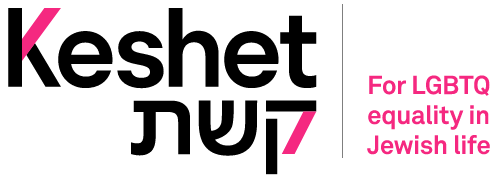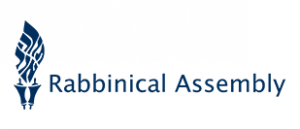Please Give Us a Second Chance: A Reflection on Ishay Ribo's "Seder HaAvodah"
September 9, 2021
Rabbi Braun
Rosh Hashanah 5782 / 2021
I remember that after each of my parents died, there was a period where I just couldn’t psychologically absorb any added tension. Watching TV was exhausting, suspense was depleting, hospital shows were absolutely off the list, and walking the dog where she could encounter and run after other dogs was just too much. Comfort, even as it was offered, was difficult to find. Of course, as is the course of life, my grief lifted, and slowly I was able to absorb more. While I don’t feel as bad as I did in those days, the memory has come back often over this past year. Many of us have spoken about the heaviness of these times - the lack of control, the losses…one might even call it grief. It’s as though we’re standing on quicksand as we experience social unrest, racism, sexism and all the other “isms,” earthquakes, fires, heat waves, hurricanes, climate change, and now, Afghanistan. And then, all of this, combined with COVID fears and restrictions and our own personal experiences- even the changes we decided to make for these services (!) leaves us with that feeling which my mother might call, “enough is too much!” One of my colleagues suggested that while sometimes a Rabbi’s job is to afflict the comfortable, perhaps this year our messages might focus on comforting the afflicted. That is not to say that we can ignore what’s going on around us, but we may have to focus on our own healing first. We need to, as the flight attendants say, “place the oxygen mask over our own noses and mouths, before attending to others.” Where is your oxygen coming from this year? My oxygen, these days, is coming from a place in our tradition that I would never have expected...the Avodah service.
Ever since I heard Ishay Ribo’s “Seder Ha Avodah” last year, I’ve been mesmerized. I’ve listened to it over and over. If you were here on the Yom Kippur Zoom last year, Ribo’s version served as our Avodah Service. My intention is to play it again just before Kol Nidrei. To be fair, during more normal years, most of the community doesn’t really take in the Avodah service. It is late in Musaf on Yom Kippur, right before the dreaded Martyrology. Many of us have left, others are holding on for dear life before a well deserved nap or walk, some are even napping while it is happening. Maybe because I like drama in literature, or maybe because it is so different from the rest of the services, or maybe because I have to be awake... I have always found it interesting. I am somehow comforted by the way that ritual effects change in the upper spheres where God and the Angels hang out, as well as in the lower spheres where God and humans converse. Perhaps I am a closet Kabbalist. I like the ritual’s consistency, and the idea that it always works. My practical grandfather would call it hooey - too much magic. I find it comforting because it somehow gives me hope that even - maybe especially - in this unsettling time, a personal reset may be possible. I find myself pleading to myself and to the world: ‘Give me another chance! I am a year older and have gone through many new experiences. I know more about myself and how others might feel than I did a year ago. I’m not happy with the way my society interacts with one another and I’m not always happy with the way I interact with them or, frankly, how I interact with myself!’ Perhaps, by reading and internalizing the ritual of the High Priest, performed on the most holy of days and in the most holy space, I will know the feeling that all of Israel felt when they were forgiven.
Now, you might ask why I am talking about Yom Kippur on Rosh Hashanah. Well, it is a lot to digest, so I wanted to introduce it to you early, so you might have some time to mull it over in the hopes that it will help prepare us for a meaningful and purposeful holiday.
As I said, the Avodah service is the detailed story of the High Priest, the Kohen Gadol, who prepares for a week, or maybe a lifetime, prior to his performance. He studies and reviews texts and the proper ways to perform the sacrifices, long before Yom Kippur. When he gets to the day, he puts on and takes off special garments, recites sacred words, sacrifices animals, sprinkles the blood of sin offerings in a prescribed way, walks all around the sacred area of the Temple and in the end, brings atonement to himself, his household and all of Israel. And then, after his service is completed, he holds a huge party celebrating everyone’s new status and all the opportunities in front of them. [Please find the text here.
Unlike the story from our Machzor, which is actually a rendition of what we would find in the second and third century work called the Mishnah, Ribo’s poem begins in the middle of something:
נכנס למקום שנכנס
/ He entered into the place he entered. The poem doesn’t identify who entered, where they entered, nor why they entered. All we know is that someone entered, somewhere. The poet doesn’t say that this is the most important day of the year, nor that the “He” is the Kohen Gadol, who had gone through serious preparations to get to this point. The poet doesn’t tell us that the place the Kohen entered was the Holy of Holies which he entered only one day of the year, nor that the reason he is there is to make atonement for all of the congregation of the children of Israel. It almost doesn’t matter. To the listener, though, there is a hint that something important is happening here which comes from the word,
makom, place. “He entered into the
makom
that he entered.
Makom, place, is one of the many names we have for God; so whoever is entering, is in God's very presence. The lack of detail gives us space to consider that perhaps we are the Kohen Gadol; perhaps we can be in God’s presence with the ability to make atonement for ourselves and others; perhaps the place we enter is our own sanctuary, or our own heart. We enter into the place we enter - no more and no less. Wherever we are is holy space.
The Kohen Gadol then purifies himself, changes his clothes and prays, “Please God, atone for the sins, the wrongs, and the offenses that I have sinned before You - I and my family (or house).” Ribo omits other rituals described in the Mishnah and suggests an amazing interpretation: rather than having the Kohen Gadol pray, slaughter the animal, and dramatically count the sprinkling of the blood of purification, he has the Kohen Gadol counting his or our failures. “One, one and one, one and two, one and three.” He has to stop counting after 5 because each number is a painful reminder of those times that he recalls missing the mark. I am reminded of those times when I’m trying to get to sleep, but I keep going over all my regrets of the day: the times when I misunderstood and may have hurt another person, times when I wish I had replied more kindly or more clearly, times when I wish I had just kept quiet. “And if a person could remember the failures,” the poem reads, “the missed opportunities, the sins, the errors they would certainly count, one, one and one; one and two, one and three, one and four, one and five. They would quickly give up counting because they couldn’t bear...the bitterness, the shame, the waste, the loss…” Have you ever thought about how overwhelmed the Kohen Gadol must have been thinking about his own, his family’s, and the nation’s sins? Was it as much a burden for him as it is for us? One would have to stop for a while and heal before continuing. One might even stop counting. Finishing this lament, perhaps feeling the heaviness lift a bit, the High Priest would proceed into the courtyard where he would pronounce the four letter name of God; the name which we no longer know how to pronounce, the ineffable Name of God. Upon hearing it, the people would bow to the ground and reply,
ברוך שם כבוד מלכותו לעולם ועד
Blessed is the name of God’s glorious kingdom for ever and ever
Before I continue, I want to dwell on this phrase, which we say under our breath each time we recite the Shema, and when we put on Tefillin. A phrase we say out loud only on Yom Kippur. I was curious to find out why the people didn’t simply and ecstatically say, “amen” when they heard this name of God. It turns out that this phrase is unique to the Temple and to this Avodah service. It is not even found in the Torah. After the Temple’s destruction, the Rabbis, perhaps feeling its uniqueness and its close proximity to this most sacred public service, added it to the liturgy with several stories. One is that these were Jacob’s final deathbed words when he realized that his children would never abandon their relationship to God and Judaism. My favorite midrash is that Moses heard the Angels saying it and he liked it so much, he stole it from the Angels and then taught it to the Israelites. Because it comes from the Angels, we, mere humans, say it under our breath except on the one day we become like the angels - on Yom Kippur. Another explanation is that when the Temple was destroyed, the people would never again hear God’s name recited by the Kohanim; all that was left was the response, Baruch shem kavod, so the Rabbis moved it to where they felt was the next best place that reflected the holiness of God's ineffable name - the Shema. Baruch shem
became a phrase meant to honor God’s Name and therefore, God’s reputation. The third commandment tells us never to take God’s name in vain. But what happens when we say a berachah, a blessing, with the best of intentions, only it might have been the wrong blessing? The Rabbis say that we correct our error by reciting baruch shem
- blessed is the name.... God’s name, God’s essence, is sacrosanct. And, as we are created in God’s image, so is ours. When we recite the Shema, when we answer Baruch shem kevod malchuto l’olam vaed
we are once again a participant in this most sacred service of forgiveness, and holiness.
In the story from the Mishna, the Kohen Gadol would make three confessions: one for himself, one for his household, and one for all of Israel. Ribo’s retelling has the High Priest making the same confession twice, only it’s not exactly the same confession. This time dressed in gold, as he would have been for the daily offering, he again asks for forgiveness, but rather than count the sins, he counts gratitudes. “And if a person could but remember the many kindnesses and the good and all the many mercies and all the many crises resolved, certainly he would count like this: one, one and one, one and two, one and a thousand thousands of thousands.... of amazing miracles, that you have done for us day and night.” We find this very same language in the Shabbat morning liturgy, early on, as we prepare to engage the Divine for the morning. How is it that our blunders keep us up at night, rather than the splendor of life?
Like the story we read each year, the ending is filled with joy. The Kohen Gadol becomes a regular person, puts on his regular clothes and goes home with his friends to party. Again, bringing in everyday liturgy, Ribo quotes the Ashrei:
אשרי העם שככה לו אשרי העם שה’ אלוהיו
Happy is the one whose “Yud-Hay-Vav-Hay” is their God
Happiness abounds. Relationships are restored, broken hearts are made whole and we all are able to start off with a clean slate.
For a moment, this story of God, the Kohen Gadol, and all of Israel gives me an opportunity to experience hope - hope that there is a way to clear ourselves and our people of the blunders, the jealousies and the bitterness which prevent us from living in a peaceful, clean, kind world. With this version, I hear the value of the human process of teshuva: preparation, intention, confession which brings awareness, and finally, celebration with community. I am struck by the line after his first confession:
בלא רבב היו שוים פיו ומעשי
Without stain, his mouth was equal to his deeds
This Kohen Gadol “walked the talk,” perhaps only after he realized how destructive our missteps can be. If we take this story literally we might believe that someone else will do our work. If we don’t pay attention to it at all, we will miss the richness, depth and power of ritual. What is stopping us from being a Kohen Gadol - the kind who cares enough to be introspective, to take responsibility for ourselves, for our families and for our community; the kind who is willing to step out of the ordinary, who feels the pains and losses of others, and who feels the ecstatic joy of others’ success? Because if we were able to emulate even a part of this ritual, then, we too will be awestruck by the “canopy of the heavens, the splendor of the angels, the symbol of the rainbow and the tenderness between lovers. Then we will have peace.



